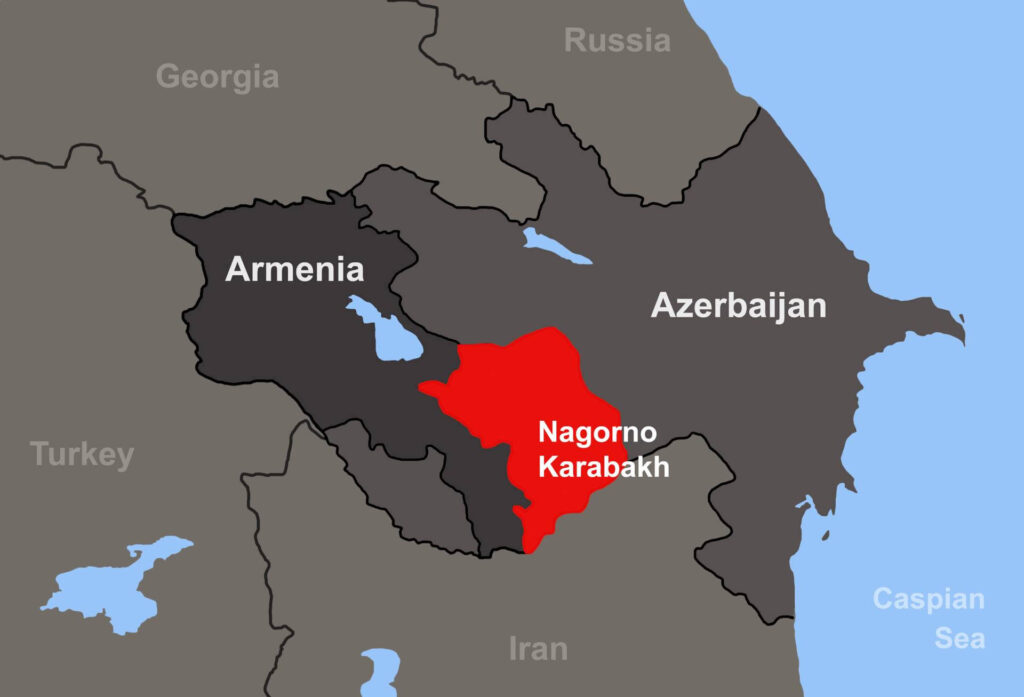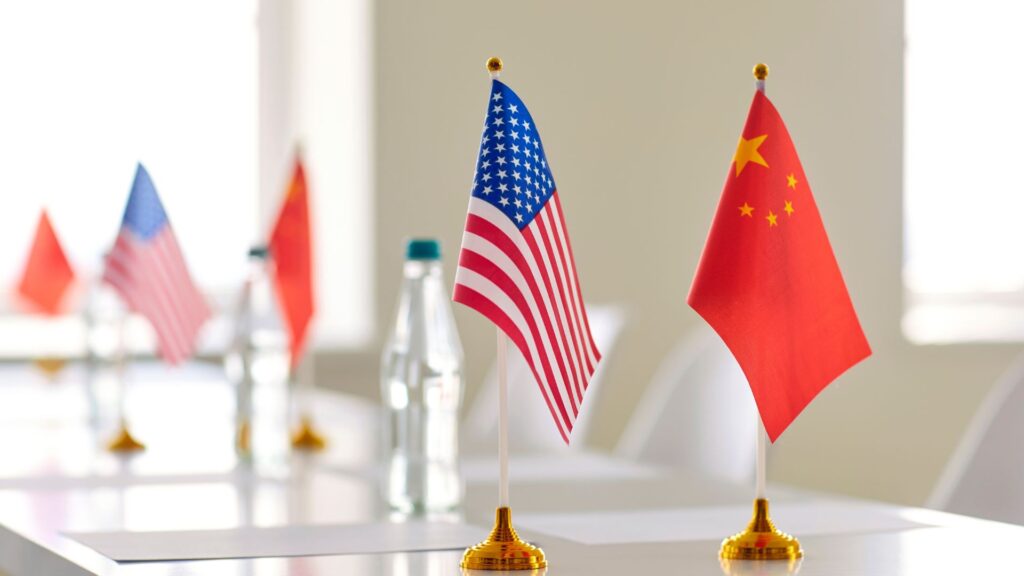On October 7, Hamas launched a terrorist attack on Israel. Militants crossed the Gaza–Israel border and killed 1,200 Israelis.
US President Joe Biden was in Israel shortly after the attack. He was vocal about his support for Israel. This is likely to create tension between the US and the Arab world.
Biden was supposed to meet with the king of Jordan, the president of Egypt and the president of the Palestinian authority. This meeting was canceled after reports that a rocket had destroyed a hospital in Gaza. However, it was later revealed it was not an Israeli rocket that caused the explosions.
This all will make brokering a normalization agreement between Israel and Saudi Arabia more complicated.
US military power is surging to the region, mainly to deter Hezbollah from entering the conflict. That would create a two-front war for Israel, with Hamas in Gaza to the south and Hezbollah in Lebanon to the north. The US goal will be to keep the conflict contained.
The war has enflamed passions across the Arab world. This will probably not lead, though, to an Arab uprising like the 2011 Arab Spring. The Arab Spring was not organized around support for the Palestinians, but rather deep-rooted grievances about governance, or lack thereof, and especially the economic situation.
Russia–Ukraine War
Vladimir Putin is likely glad the Israel–Hamas conflict is occupying the world’s focus. However, the US Congress may package aid to Ukraine together with aid to Israel. This makes it more likely that Ukraine will get military aid than it was before the war in Gaza began.
A very long war favors Russia because for Ukraine to keep up a war of attrition, it has to rely on the generosity of donor countries (primarily the US and Europe). The West’s appetite for aid is not as high as it was at the beginning of the war, and it will presumably continue to decline. Russia, conversely, will increasingly have the upper hand because of its large domestic resource base
The situation, therefore seems to favor Russia. Ukraine and Russia may still be fighting a year from now. However, there are a bunch of unknowns that could tip the war either way. Western military technology might make new tactical options available for Ukraine; Russian lines or Ukrainian lines could falter, and the situation would change rapidly.
Ukraine’s neighbors: Poland, Hungary and Turkey
Poland just had elections, so there will be a new government there. The new government is more pro-Europe, so any tension with Ukraine is likely to subside.
More worrying is the situation with Hungary. On October 17, the Hungarian president met Vladimir Putin — the first time a NATO leader met with Putin since the war began. Still, Hungary is unlikely to make a meaningful impact on the outcome of the war.
Then comes Ukraine’s neighbor across the Black Sea, Turkey. Turkey’s role in NATO is always complicated. Turkey is formally aligned with the West, but it plays a double game, keeping ties with Russia. This has allowed it to do things like negotiate the original Black Sea grain initiative.
In September, Turkey collaborated with Russia in Nagorno-Karabakh, an Armenian enclave in Azerbaijan. All the Armenians have been kicked out in a form of ethnic cleansing. This happened with Russia’s blessings and Turkey’s involvement. (This may not be the end of the story, either — Azerbaijan may invade Armenia itself. Azerbaijan could capture territory in southern Armenia to create a land bridge with its exclave, Nakhchivan.)
Turkey blocking Sweden’s entrance into NATO continues to be a frustration. This is because of what Turkey sees as Sweden’s insufficient crackdown on Kurdish activists. Hopefully, Turkey will see the bigger picture because Sweden would be a great ally to have in NATO.
China and the US face off in the Pacific
On the other side of Eurasia, the United States is facing a challenge of a different kind.
The rise of China is the most consequential challenge to the US ever. China-US relations are going to continue to be tense indefinitely.
The Taiwan issue is special because it is the one that could lead to conflict between the two powers. It’s extremely unlikely the US and China will come to blows over the South China Sea or the Uyghurs or any other issue that divides the two countries. Over Taiwan, they could. President Xi Jinping has told his army to be ready for the forcible seizure of Taiwan by 2027, and President Biden four times publicly has said that if Taiwan is attacked, the US will come to its defense.
There are multiple reasons Taiwan is important. Recently, there has been talk about semiconductors and their critical role in the US economy. There is also the military advantage that China would accrue by controlling Taiwan. Also, there are long-standing ties between Taiwan and the US. There is a real desire to avoid seeing a free, democratic country swallowed up by force.
Chinese economic turmoil
The Chinese Communist Party is going through a crisis of legitimacy. Its implicit contract with the Chinese people is that it provides them economic growth in exchange for their loyalty. But the COVID-19 pandemic took a heavy toll on the Chinese economy, and deeper issues like over-investment in real estate development have created dangerous bubbles.
Still, large economies have survived bubbles bursting before. The US weathered the 2007–2008 subprime mortgage crisis, and it did not implode. These days, the mood among analysts of China is all doom and gloom; the talk is all about a “declining China.” But Zhongnanhai hasn’t gotten the memo. By and large, Chinese government officials still believe that, despite economic setbacks, China is on the rise and the declining West will have to deal with it.
At the end of the day, it is too early to tell. We simply do not know if China will recover or if this slump marks the beginning of the end. We also do not know how Xi will react. Will he focus on the economy like Deng Xiaoping, or will he imitate Mao Zedong and subordinate economic issues to ideological ones? We do not know, but for now, the latter seems more likely.
[Erica Beinlich wrote the first draft of this piece.]
The views expressed in this article/podcast are the author’s own and do not necessarily reflect Fair Observer’s editorial policy.















Comment